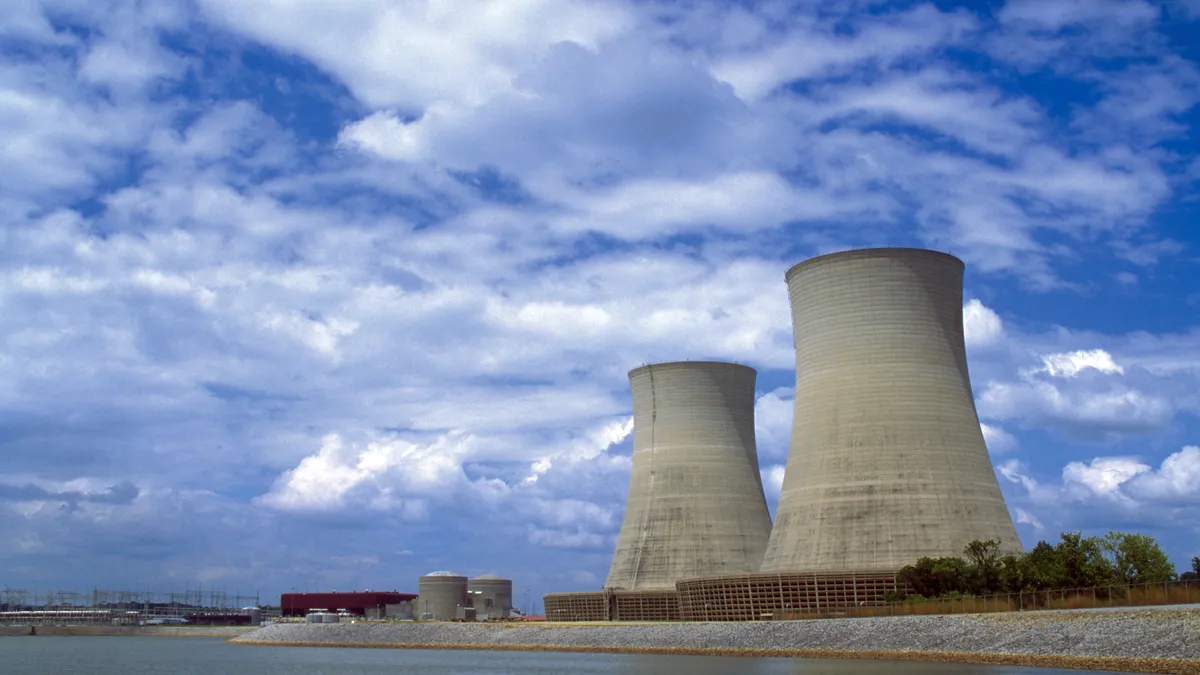Dive Brief:
- The U.S Department of Energy on Thursday announced a $2.7 billion request for proposals for the purchase of low-enriched uranium, or LEU, from domestic sources. The RFP follows a series of actions by lawmakers and the Biden administration to grow and secure the U.S. nuclear fleet.
- “Strengthening our domestic nuclear fuel supply chain will be critical as we continue to move from an energy system reliant on foreign suppliers and fossil fuels to one that embraces cleaner sources of power and domestic manufacturing,” Assistant to the President and National Climate Advisor Ali Zaidi said in a statement.
- DOE said it plans to award at least two contracts for terms up to 10 years. Responses to the RFP are due Aug. 26.
Dive Insight:
Development of a stronger nuclear sector, with a particular focus on the domestic supply chain, is key to decarbonizing the U.S. energy sector, DOE officials said last week.
The RFP published Thursday “will help spur the safe and responsible build-out of uranium enrichment capacity in the United States, promote diversity in the market, and provide a reliable supply of commercial nuclear fuel to support the energy security and resilience of the American people and domestic industries, free from Russian influence,” DOE said.
Developing domestic LEU capacity will ensure an adequate fuel supply for the existing U.S. nuclear fleet as well as the deployment of advanced reactors, according to the agency. The RFP seeks LEU from either new domestic sources of enrichment or expansions from existing producers, which DOE will then sell to utilities operating reactors.
The Biden administration “is helping jumpstart uranium enrichment capacity here in the United States, which is critical to strengthening our national security and growing our domestic nuclear industry,” Energy Secretary Jennifer Granholm said. Announcement of the RFP underscores America’s commitment to remaining the global leader in nuclear energy for generations to come.”
The RFP is funded by the Emergency National Security Supplemental Appropriations Act of 2024, which included money for conventional and advanced U.S. uranium enrichment capabilities. Those funds were unlocked by legislation banning imports of Russian uranium, which Biden signed in May.
Other efforts to grow the domestic nuclear sector are ongoing.
The U.S. Senate in June passed bipartisan legislation to streamline the Nuclear Regulatory Commission’s oversight of the existing U.S. nuclear reactor fleet, which experts say could accelerate permitting and deployment of advanced nuclear reactors. The Accelerating Deployment of Versatile, Advanced Nuclear for Clean Energy Act directs the NRC to update its mission statement “to include that licensing and regulation of the civilian use of radioactive materials and nuclear energy be conducted in a manner that is efficient and does not unnecessarily limit” their civilian use or benefits to society.
Advanced reactor licensing guidance published by the NRC in March provides a path forward for new reactor technologies, according to experts.















